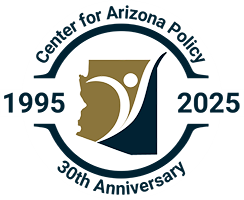Chances are you saw or at least heard about the giant “pride” party on the White House lawn last weekend. This was not your average rainbow virtue signal by corporations lobbying for a higher Corporate Equity Index (CEI) score. This was the people’s house in Washington D.C.; the “pride” flag front and center and on par with two American flags; the President and thousands of others flaunting their rejection of God’s natural design; and sending a message that this is America.
The President of the United States smiled for selfies with men pretending to be women, one who later bared his fake breasts in the midst of other partiers, including children. The President lauded sex-change surgeries and puberty-altering drugs for children, and he shamed parents and state lawmakers for standing in the way, adding, “they’re all our kids.”
That anti-parent sentiment is politically risky. It’s what led to a more conservative Governor in Virginia, as well as changes to school boards in some cities, including here in Arizona. But not enough to stop the LGBTQ freight train plowing through public schools.
For example, new members on the board in Peoria school district, Heather Rooks and Rebecca Hill, wanted a privacy policy protecting girls and boys from sharing showers, restrooms, and locker rooms with the opposite sex. At one Peoria high school, girls had pleaded for protection. Activists packed the school board meeting in protest and attorneys alleged the policy would violate federal law.
The motion failed, leaving Peoria without a protective policy and allowing the board to cop to a default position of allowing boys to shower with girls.
Despite a number of new school board members pushing for commonsense privacy policies that – until five minutes ago – were never in question, school boards either openly allow boys and girls to shower, change clothes, and use the restroom together, or they do so covertly.
Scottsdale’s school board first denied the existence of a transgender policy, and then fought to keep it a secret when new school board member Amy Carney brought the issue to talk radio. She openly called out the board and the superintendent. Carney and parents pushed until the gender support plan was revealed. It includes asking if the student’s parents know of the “transition” and whether they support it, as well as a warning about dealing with parents who don’t support their child secretly transitioning at school. Carney was blasted in a local op-ed for fighting for parent’s rights.
Boards in opposition to the privacy efforts rely on a misunderstanding of the law and a couple of court rulings. The Ninth Circuit Court of Appeals ruled Title IX does not contain a right to separate bathrooms. However, it did not rule bathrooms must be mixed.
The 11th Circuit Court of Appeals upheld a school district policy requiring separate bathrooms based on biological sex. But, it did not say bathrooms must be separate. It ruled that “A policy can lawfully classify on the basis of biological sex without unlawfully discriminating on the basis of transgender status.”
More importantly, the U.S. Supreme Court has not interpreted discrimination on the basis of sex to include gender identity and sexual orientation in Title IX cases. The Bostock ruling only addressed Title VII employment type cases.
School boards wary of violating the law, or triggering the boisterous LGBTQ activists, default to allowing boys to use girls’ restrooms, thus, putting girls in a vulnerable position for boys who would exploit the law to access their victims.
After new school board member Rachel Walden brought to light the 2015 Mesa school district gender plan during a recent school board meeting, attorneys told her she couldn’t talk about it.
The guidelines allow boys to use girls’ private spaces and change their names and pronouns. Walden points out many parents are not involved or are even aware of the policy. Read more on it here.
School boards have generally trended liberal and flew under the radar until COVID lockdowns opened parents’ eyes to what was being taught in many public schools. Since then and coupled with the strong push by LGBTQ activists infiltrating school curriculum, after school activities, and school board policies, concerned parents answered by running for school boards or closely monitoring those who did.
While these important issues move through the courts, school boards seem to hold the power. Check your school board’s current policy and pay close attention to who is sitting on the board, and who is running to unseat them.
ICYMI
- Read here a resolution by the Southern Baptist Convention strongly rejecting the transgender movement and resolving to hold to biblical views of gender and sexuality.
- Read here about the effective backlash to “pride month.”
- Read here how a California bill would charge parents with abuse if they don’t affirm their child’s “transition.”
- Read here about Washington State providing taxpayer-funded “Plan B” pills in vending machines on college campuses.
Stay connected and consider receiving additional publications by joining the CAP Network.


